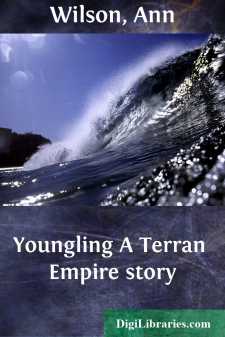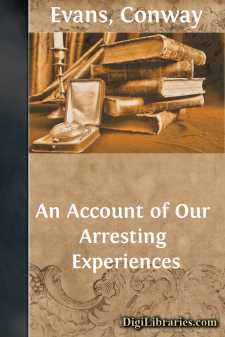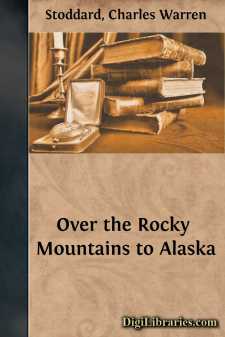Categories
- Antiques & Collectibles 13
- Architecture 36
- Art 48
- Bibles 22
- Biography & Autobiography 813
- Body, Mind & Spirit 142
- Business & Economics 28
- Children's Books 13
- Children's Fiction 10
- Computers 4
- Cooking 94
- Crafts & Hobbies 4
- Drama 346
- Education 46
- Family & Relationships 57
- Fiction 11828
- Games 19
- Gardening 17
- Health & Fitness 34
- History 1377
- House & Home 1
- Humor 147
- Juvenile Fiction 1873
- Juvenile Nonfiction 202
- Language Arts & Disciplines 88
- Law 16
- Literary Collections 686
- Literary Criticism 179
- Mathematics 13
- Medical 41
- Music 40
- Nature 179
- Non-Classifiable 1768
- Performing Arts 7
- Periodicals 1453
- Philosophy 64
- Photography 2
- Poetry 896
- Political Science 203
- Psychology 42
- Reference 154
- Religion 513
- Science 126
- Self-Help 84
- Social Science 81
- Sports & Recreation 34
- Study Aids 3
- Technology & Engineering 59
- Transportation 23
- Travel 463
- True Crime 29
Sort by:
CHAPTER I INTRODUCTION—THE PRESENT UNREST IN EDUCATION The problems as to the end or ends at which our educational agencies should aim in the training and instruction of the children of the nation, and of the right methods of attaining these ends once they have been definitely and clearly recognised, are at the present day receiving greater and greater attention not only from professed...
more...
CERES’ RUNAWAY One can hardly be dull possessing the pleasant imaginary picture of a Municipality hot in chase of a wild crop—at least while the charming quarry escapes, as it does in Rome. The Municipality does not exist that would be nimble enough to overtake the Roman growth of green in the high places of the city. It is true that there have been the famous captures—those in the Colosseum,...
more...
by:
Tom Knoth
Keep this in mind in teaching apprentices: They are future journeymen—and even masters! October 10, 2119New San Francisco Today, at precisely 9:50 a.m., Kyle became First Imperator of Terra. His coup was so fantastically direct and facile that I am almost tempted to believe that old cliche "the time was right." Well, however badly it can be expressed, I suppose the world was ripe for this...
more...
by:
Ann Wilson
Unnamed world, 2559 CE Joste was waiting in front of his desk when two guards brought the just-captured human into his office. He found it hard to look at the man without becoming physically ill, and wondered briefly how the guards could tolerate touching him. Well, that was their job; his was to question the man, and he found himself hoping the foul thing would resist, give him an excuse to use force....
more...
INTRODUCTION I. Situation, Extent and Boundaries Hertfordshire, or Herts, is a county in the S.E. of England. On the S. it is bounded by Middlesex; on the S.W. by Buckinghamshire; on the N.W. by Bedfordshire; on the N. by Cambridgeshire; on the E. by Essex. Its extreme measurement from due E. to W., say from Little Hyde Hall to Puttenham, is about 38 miles; from N. to S., from Mobb’s Hole at the top...
more...
EASTWARD HO! Our Battalion of the Manchesters was typical of the old Territorial Force, whose memory has already faded in the glory of the greater Army created during the War, but whose services in the period between the retreat from Mons and the coming into action of "Kitchener's Men" claim national gratitude. Their earlier history hardly emerges from parochialism. Founded in 1859 and...
more...
by:
Samuel Johnson
INCH KEITH I had desired to visit the Hebrides, or Western Islands of Scotland, so long, that I scarcely remember how the wish was originally excited; and was in the Autumn of the year 1773 induced to undertake the journey, by finding in Mr. Boswell a companion, whose acuteness would help my inquiry, and whose gaiety of conversation and civility of manners are sufficient to counteract the...
more...
by:
Conway Evans
We had been travelling for many weeks,—Lyra Nickerson, Katherine Schermerhorn, and I,—and after a beautiful tour through Germany, we arrived at Berlin on the evening of July 29, 1914. We had planned to spend a few days there preparatory to embarking at Hamburg in the Viktoria Luise for a northern cruise, and were looking forward to a short stay in the splendid capital. When we had secured our rooms...
more...
by:
Paul Allen
LIFE OF CAPTAIN LEWIS. Monticello, August 18, 1813. SIR, In compliance with the request conveyed in your letter of May 25, I have endeavoured to obtain, from the relations and friends of the late governor Lewis, information of such incidents of his life as might be not unacceptable to those who may read the narrative of his western discoveries. The ordinary occurrences of a private life, and those also...
more...
Chapter I.Due West to Denver. Commencement week at Notre Dame ended in a blaze of glory. Multitudes of guests who had been camping for a night or two in the recitation rooms—our temporary dormitories—gave themselves up to the boyish delights of school-life, and set numerous examples which the students were only too glad to follow. The boat race on the lake was a picture; the champion baseball...
more...











